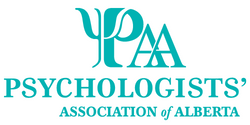Becoming a Community Executive
Leadership Made Flexible with PAA Communities of Practice
Communities of Practice (CoP) are the way to connect with your colleagues who are interested in and passionate about the same topics in the field of psychology as you. You can connect, share resources, discuss, and create via PAA Collaborate.
All communities have a set of executives.
- Executives are responsible that the CoP follows PAA mission and vision
- Executives are elected for a three-year term
- As PAA key volunteers, CoP Executives will receive a complimentary ticket to the annual Awards Banquet, and 1 free PAA workshop or webinar/fiscal year
GET INVOLVED
You can find the vacant Executives roles in the Community’s executives tab, or by reaching out to us via email. After you have chosen what role you would like to fulfill, you can reach out to your community chair, or to us via email and state what community and the executive role you would like to take on. If no other names come forward for the same role, you can start as the acting executive and your name will be presented to the PAA board of directors for ratification at the next board meeting. After ratification, you have officially become a member of the executive team of said Community. Congratulations!
PAA Communities of Practice Executive Roles
 The Chair Is responsible for committee facilitation and providing a brief written committee report annually for the PAA Annual General Report. Participate and attend all meetings of the chairs of Communities of Practice. Act as a vessel between the Community, the PAA Board, and PAA CEO.
The Chair Is responsible for committee facilitation and providing a brief written committee report annually for the PAA Annual General Report. Participate and attend all meetings of the chairs of Communities of Practice. Act as a vessel between the Community, the PAA Board, and PAA CEO.
Vice-Chair Supports the Chair as needed. They provide four brief written committee reports for the PAA board meetings quarterly. And discipline members who are not following community guidelines as advised by the moderator, place them on temporary shadow bans, and decide with the chair and PAA offices if the member should be removed from the Community.
Moderator(s) Ensures that the conversation follows CoP communication guidelines. Watching over conversations to ensure respectful and inclusive communication, notify PAA staff if any issues arise, warn and place members of temporary shadow bans if the member violates, and continue to CoP conversation guidelines. If the problem persists, notify the chair, vice-chair, and PAA office. This role can be held by two or more individuals when the Community grows.
Member Engagement Posts questions and conversation starters to the group. Encourage collaboration within the Community and laterally between communities. Share research and fact-based information and resources. Direct members to PAA member benefits and programs when appropriate.
Publication Officer Knowledgeable about collecting information into fact sheets and other resources like letters and presentations. Decides together with the Community what information is for the public and what is member sensitive. Proofreads the final drafts and forwards them to PAA offices to be circulated with the rest of the members of the public.
Professional Learning Polls the Community’s interests in regards to webinars, workshops, and other Professional Development Opportunities. Is the point of contact for community members who are providers of workshops and takes suggestions from the members. Is familiar with the PAA PD vents and can direct members to the workshops they are looking for and help with registration.
